Creating Multidimensional Data Structures
Creation of multidimensional data structures is a multidimensional model which a logical data organization as multidimensional data cubes. A cube is a multidimensional object with cells containing data (facts) and axes (dictionaries) determining dimensions (characteristics) of indicators stored in a cube.
The following development trends are selected for Foresight Analytics Platform provides the following multidimensional data structure types:
- Time series database (TSDB). Each data series is described by a certain set of characteristics (attributes) in TSDB. The set of the characteristics is fixed and specified in the TSDB structure on creation. The calculations use the data of the entire series, rather than individual cells, as it does on working with cubes.
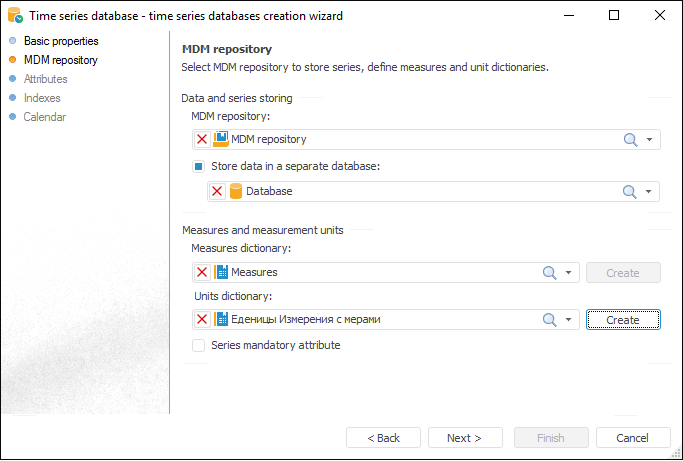
- Cubes. Cubes in Foresight Analytics Platform can be built on several data sources. The sources can be located either in the current repository, either in other repositories or files. Cube dimensions can also be built on various data, for example, one dimension can be built on Microsoft SQL Server data and another on Microsoft Excel data. To extract data from cubes, the solution uses complex (multi-pass) SQL queries enabling to minimize data transferred through the network.
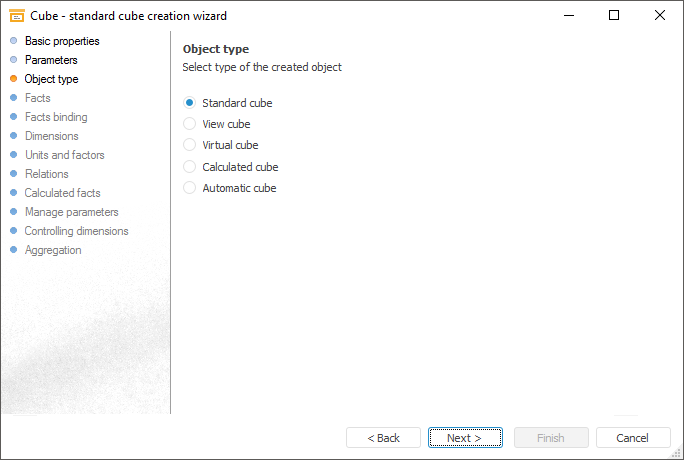
Cubes come in a variety of types:
- Standard Cube. Structure of a cube is determined by the set of dictionaries and the combination of facts. Facts describe the data stored in dimensions that are determined by a set of cube dictionaries. In other words, dictionaries determine the coordinate axes of the cube, and facts determine various different in each point of the obtained coordinate system. Except for the facts that store data, calculated facts and relations can be created in a cube. Calculated fact values are determined by formula based on data of other facts or relations. Relations enable the user to get fact values by shifting towards the current calculation point. It enables the user, for example, to calculate difference between the current and any previous or next value. Various types of data aggregation can also be set up in cube.
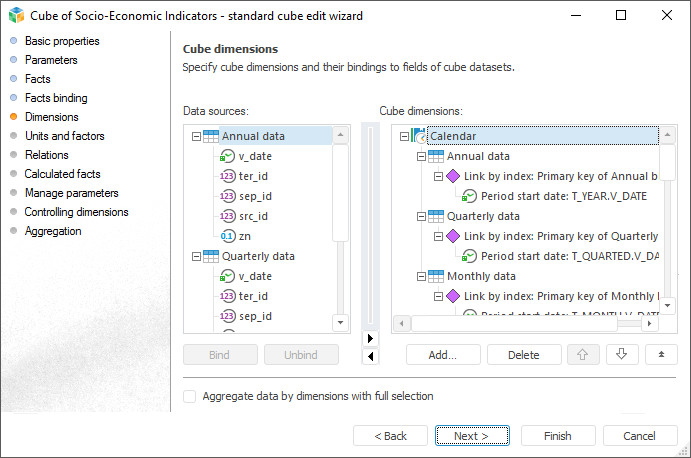
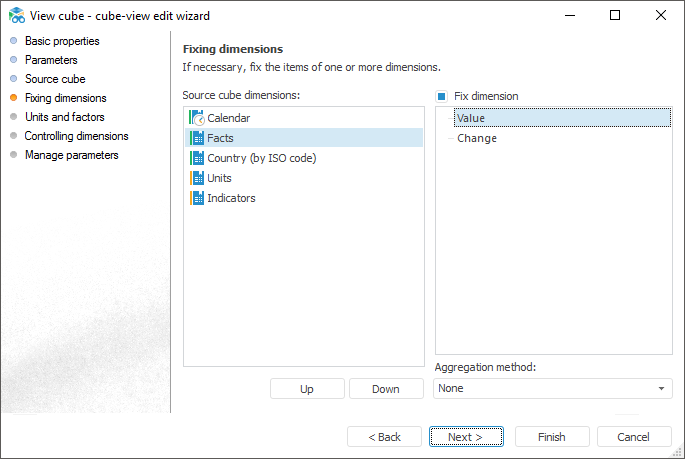
Virtual Cube. The cube is created using the other cube data. A cube fact dimension is created on the selected elements of fixed dimensions. When viewing virtual cube data in an express report, the dimensions panel shows non-fixed common dimensions of source cubes and the dimension of virtual cube facts.
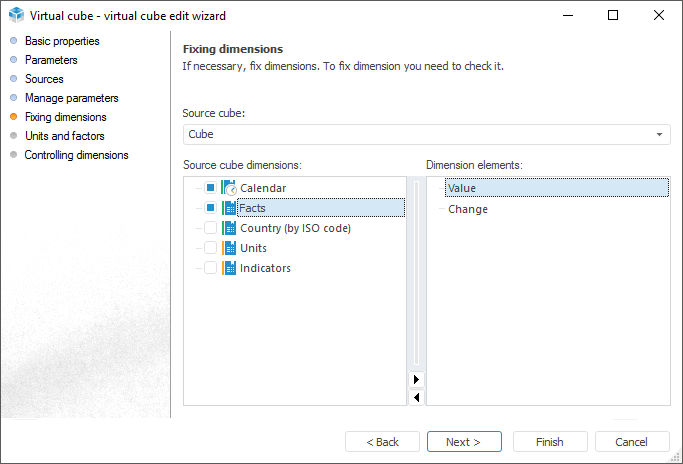
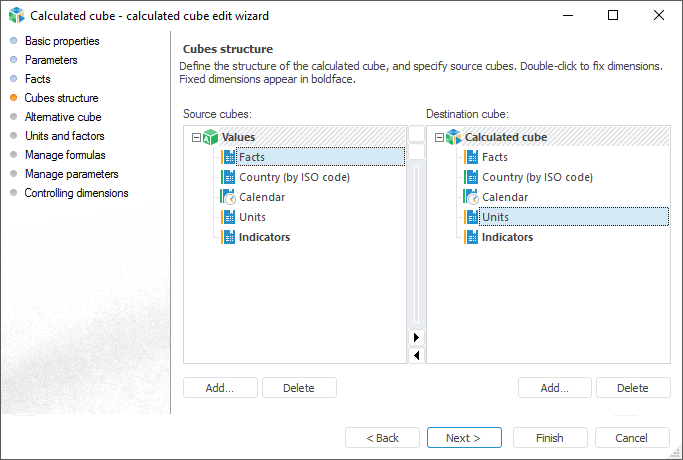
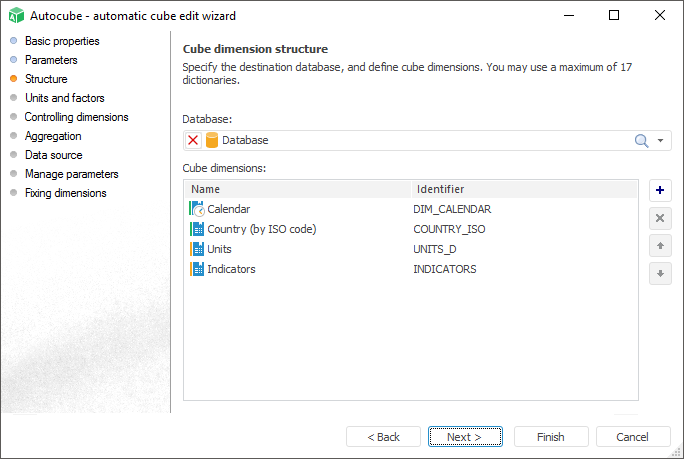
See also:
Creating Cubes | Working with Cubes







